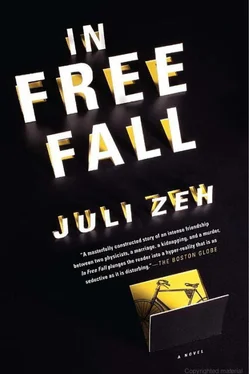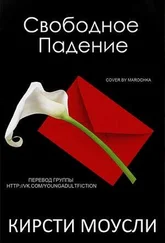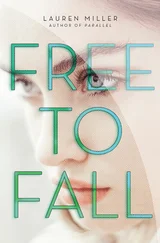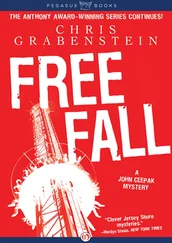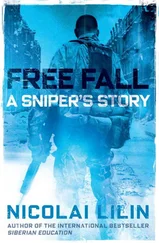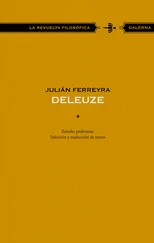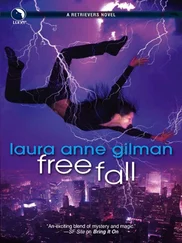She laughs and puts her arms around his neck. She does not have any bags with her, but she has brought him flowers, or something similar. Three brown, velvety bulbs swaying on stalks. They look like microphones that have accidentally got into the frame.
“Schilf,” Julia says, poking him in the ribs, “somewhat older than before.”
“Do you have the postcard with you?”
“Did you write to me?”
“Yesterday. It was important.”
“Yesterday was Sunday, Schilf. How could I have received the postcard this morning?”
She is right, as usual. The detective is relieved to realize that the result of his postcard experiment matters less and less to him the longer Julia is standing in front of him. He puts his arm around her shoulders, just like he practiced on the shore of Lake Geneva, and lowers his head to breathe in the scent of her hair. He remembers hearing somewhere that it is not possible to dream smells.
The sun breaking through the clouds turns the town into a silvery landscape. It must have rained again in the night; the puddles glisten like molten metal and Schilf has to screen his eyes against the sudden flashes from passing windshields. An old man in torn trousers calls out an airy greeting toward the other side of the road, where there is nobody at all. A young girl is standing at the corner of the street, motionless, holding on to an umbrella, her head tilted, as if she has forgotten where she wanted to go.
The detective decides to feel happy because it is delightful that there is someone who got up this morning to come visit him. It makes him happy to look at Julia’s face and watch her funny hands with their short fingers moving constantly. Looking at those hands, he understands why some people believe in the goodness of human beings. A species that includes someone like his girlfriend can be driven to do dreadful things only through some enormous misunderstanding.
Schilf’s good mood evaporates when he sees Sebastian’s face behind the clear screen of a newspaper dispenser. He sees “Hospital Scandal” and “At Large” in the headline, and quickens his step involuntarily.
“How’s your case going?” Julia asks, in the tone of a repair person come to solve a problem.
To Schilf’s own surprise, he has to pause to think before he can reply. Sebastian, Oskar, Many Worlds, and a decapitated cyclist arrange themselves into a pattern that seems almost logical and then falls apart again in a colorful whirl. The detective knows the murderer and the kidnapper, but the stupid thing is, Dabbelink’s death still does not make sense.
“There’s just one detail missing,” he says as he unlocks the door of the building that houses the police apartment. “Unfortunately, it’s the load-bearing column in the whole thing.”
“We’d best have a look,” Julia says.
The small apartment has cast off its civil servant’s demeanor today and taken on a friendly air in the zebra shadow of the slanted Venetian blinds. Julia strolls in as if she has just come back from town, empties a bottle of water into the sink, and puts the bulbs into the bottle. The detective steps into the middle of the room with his arms spread wide and shouts “Welcome!” a little too late, and feels foolish. Only that morning, he had found the words to describe his dark tear sacs and the network of lines around his eyes. Elephant face . It is not easy for a man with an elephant face to be charming, he thinks.
But Julia laughs the way she always does, and pulls the detective onto the sofa. She clasps his right hand with both of hers and presses it to her lips as if he had just died.
Since the fracture, Schilf’s interest in women has limited itself mainly to their credibility on the witness stand. Julia’s appearance in the final few meters of his journey has not changed things very much, though his body has come to an arrangement with hers that both parties find fulfilling. He likes looking at her when she undresses: she unbuttons her top as unself-consciously as other women open their handbags. Schilf is freed from any obligation to feel shyness or reverence by the countless pairs of eyes that have gazed intently at Julia’s body for years. He can simply look at her.
When her clothes have been carefully folded and draped over the back of the chair, her nakedness touches Schilf more than it arouses him. But as soon as she nestles her body against him, he makes love to her with all the passion and gratitude that he is capable of. He makes love to her so completely that everything comes to a standstill: all the pain, all the brooding, the whole human impulse toward a permanent internal report on one’s own existence. From the beginning, Julia had been able to silence the observer. There is peace for a few minutes. Infinite as the color black and beautiful as a harbinger of death.
AFTERWARD, THEY RAISE THE BLINDS and drink coffee next to the closed balcony door, clinking their cups against the glass to toast the Monday morning. On the street below, a child skitters past on steel roller skates, the kind that haven’t been made for decades. Two doves fight over a walnut that neither can open. Schilf squints into the bright light until the two doves are unmasked as crows, winter birds, birds of doom that have slipped in through a tear in the colorfully painted curtain that calls itself summer. For a few seconds he sees the trees as black skeletons against a pale sky, and he sees a large plain on which thousands of crows gather; he sees them taking flight and the sun darkening. The interval is over, his head is the same as it always was.
With a contented sound Julia leans into his arm.
“Don’t go,” Schilf whispers.
“I was gone already,” Julia says. “Now I’m here.”
She looks at him with her ocean-deep eyes, raises her eyebrows, and stretches her mouth wide, like an actress in a silent film. Schilf puts a hand on her head, closes his eyes, and tries to read her thoughts.
“We’ll soon be treating each other like a memory that is uncomfortable, but necessary,” he says.
The doorbell rings and they collide. A young trainee police officer is standing outside, and she is looking keen to get away. Schilf realizes too late that he is not wearing any trousers. He takes the envelope from her and only just stops himself from giving her a tip. The word “URGENT” stands out in red letters on the package.
The buttons on the video recorder stubbornly change places until Julia pushes the detective aside. The machine swallows the video obediently.
“Evidence?” Julia asks, making herself comfortable in front of the television with her cup of coffee.
Schilf nods.
“The murderer and his best friend,” he says, as the Circumpolar set appears.
“And who is who?”
The detective does not answer.
He enjoys watching the program a second time. The presence of the two men is even stronger on the larger screen. Transfixed, Schilf notes every look and every gesture, observes Oskar’s predatory elegance and Sebastian’s nervous watchfulness, and registers the fluctuations in tension. Julia yawns and looks bored.
“ One universe,” Oskar says. “With no possibility for escape. That’s what you should be researching. That’s where you should be living.”
When the discussion gets livelier, Julia sits up.
“What are they fighting about?”
“That’s not a scientific argument,” Sebastian shouts. “That’s moralistic dogmatism!”
“Wait a minute,” the detective says.
He turns the volume up. A glass of water hits the glass table with the force of a gunshot.
“In your double worlds you live a double life,” Oskar says.
Julia presses both hands to her ears with a scream.
“What’s going on?” she says angrily.
Читать дальше
